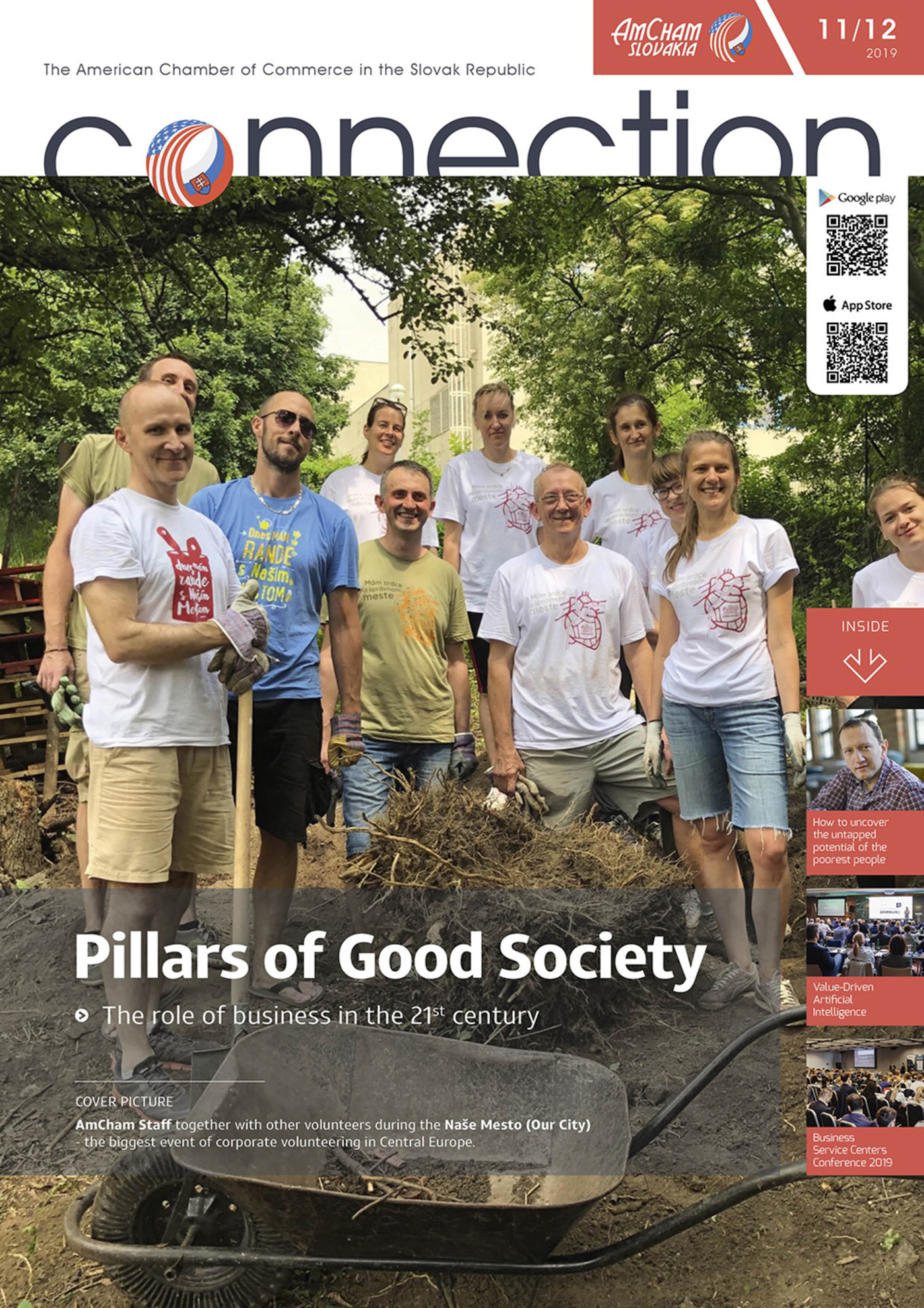Awareness of responsible entrepreneurship is growing. While 21% of respondents were able to name a particular company doing business responsibly in 2011, 36% of respondents were able to do the same in 2015 and 53% in 2017.1
In companies, the shift in perception and implementation of CSR is also significant. From one-off charity events, companies are now moving to strategic philanthropy. Nor need it to be pointed out that CSR has a much more complex scope than philanthropy. It is not just about the number of media outputs, as companies sometimes mistake CSR for sponsorship. The metrics that the enlightened companies focus on are impact-related - what impact do the actions I have undertaken and supported have? How do they affect my community? How many people will benefit from such support? However, this approach requires strategic planning and long-term implementation.
Do not Create Value for Shareholders Only
Gib Bulloch, a world-renowned innovator dedicated to intrapreneurship (in-house social innovation) and also a keynote speaker at this year’s BLF CSR Summit in November, said: “The Business Roundtable, a US top management association, has recently announced that we need to move away from putting the emphasis on the creation of value for shareholders and focus more on the creation of value for each stakeholder partner with whom the firm gets in touch – from employees, customers, suppliers to the community in which it operates. I think it is a step in the right direction.”
According to him, the biggest challenges we face in the world, such as how to feed and sustain another billion people on earth, how to provide them with access to education, health care, clean energy, etc., are hidden business opportunities.
 Social Innovations – New Challenges Require New Solutions
Social Innovations – New Challenges Require New Solutions
The common setup, in which the state and the private sector address their interests, and the third sector covers the ‘holes’ created by the first two, is not sustainable. That is why social innovation has emerged. Prosperous social innovations are those in which all three sectors work together.
Social innovation and bringing new, sustainable solutions to societal challenges are part of the positive future of the country, especially if their support is targeted and set on clearly defined priorities – ideally linked to the UN’s Sustainable Development Goals. These may be a good guide for companies and the state in this respect.
Smart grants and social enterprise investments are two examples of financing social impact in the future. What is important is a change in investors’ thinking and their motivation for such forms of investment.
How to Finance Social Impact?
“For social entrepreneurs, I have three pieces of advice on how to finance social impact. The first piece of advice is to know and understand their impact. The second piece is to know your finances very well, to understand the financial model and to be very clear about what they already have and what they need. The third recommendation is to treat donors and investment partners as equal partners,” says Roxana Damaschin-Teku, a former Director of the NESsT Portfolio and the global social enterprise portfolio.
When investing with a positive social impact, all parties – non-profit organizations, companies with a social impact and investors – are equally important. A change of mind gradually occurs on both sides. Investors are getting to know new methods of financing positive social changes. And there are non-profits which proactively learn how to run their organizations more effectively and how to think in a more entrepreneurial way.
“Investing in social impact, entrepreneurial thinking and entrepreneurial principles can help us address social challenges on a larger scale. Non-profit organizations have solutions, they know how to deal with disability issues, refugee and migrant issues, as well as issues around Roma communities in our region,” thinks Ewa Konczal, a CEE Manager of the European Venture Philanthropy Association. Non-profit organizations have the best knowledge of social problems. Their expertise and private sector support can bring great results.
We Know Positive Examples from Abroad
This model already works in Anglo-Saxon countries, as well as in Austria and Germany. Entrepreneurs are starting to invest and are already gaining their first profits. However, there is still little interest in such a form of investment in Slovakia, mainly for three reasons. The first is that the subject of social innovation is still very new and there is not enough information about it. Secondly, one party is not enough for such a form of financing. We need investors who are not afraid of innovation. And lastly, we need organizations that know how to use such support and use the money effectively. This requires support for both elements of this ecosystem.
“I think the most important thing to start with is to connect the right people. It is about connecting the best of the investment sector with the best of the social sector,” says Silke Horáková, a Co-founder of the Tilia Impact Venture, which is supported by investors and philanthropists. In the Czech Republic, this is the first fund that specializes exclusively in investments with a strong social impact. The fund is dedicated to non-profit organizations, but it also educates and motivates investors.
1 Source: FOCUS representative surveys from 2011, 2015 and 2017
Companies should not exist for profit alone
Dynamic development and rapid changes have hit the society of the 21st century. We would hardly find a field which has remained the same as ten years ago. And it also affects entrepreneurship. Its role in society is changing and is no longer just about providing services for remuneration. Today, a company no longer has to choose between profiting and solving society-wide problems.
Pillars of Good Society
- How to uncover the untapped potential of the poorest people
- Why companies and NGOs should join forces locally
- Companies should not exist for profit alone
- Slovak Telekom inspires businesses to eliminate prejudices in communications
- Circular Slovakia – a platform for circular economy
- The untapped potential of marginalized communities
- The regulatory framework and the burden for businesses



Follow us